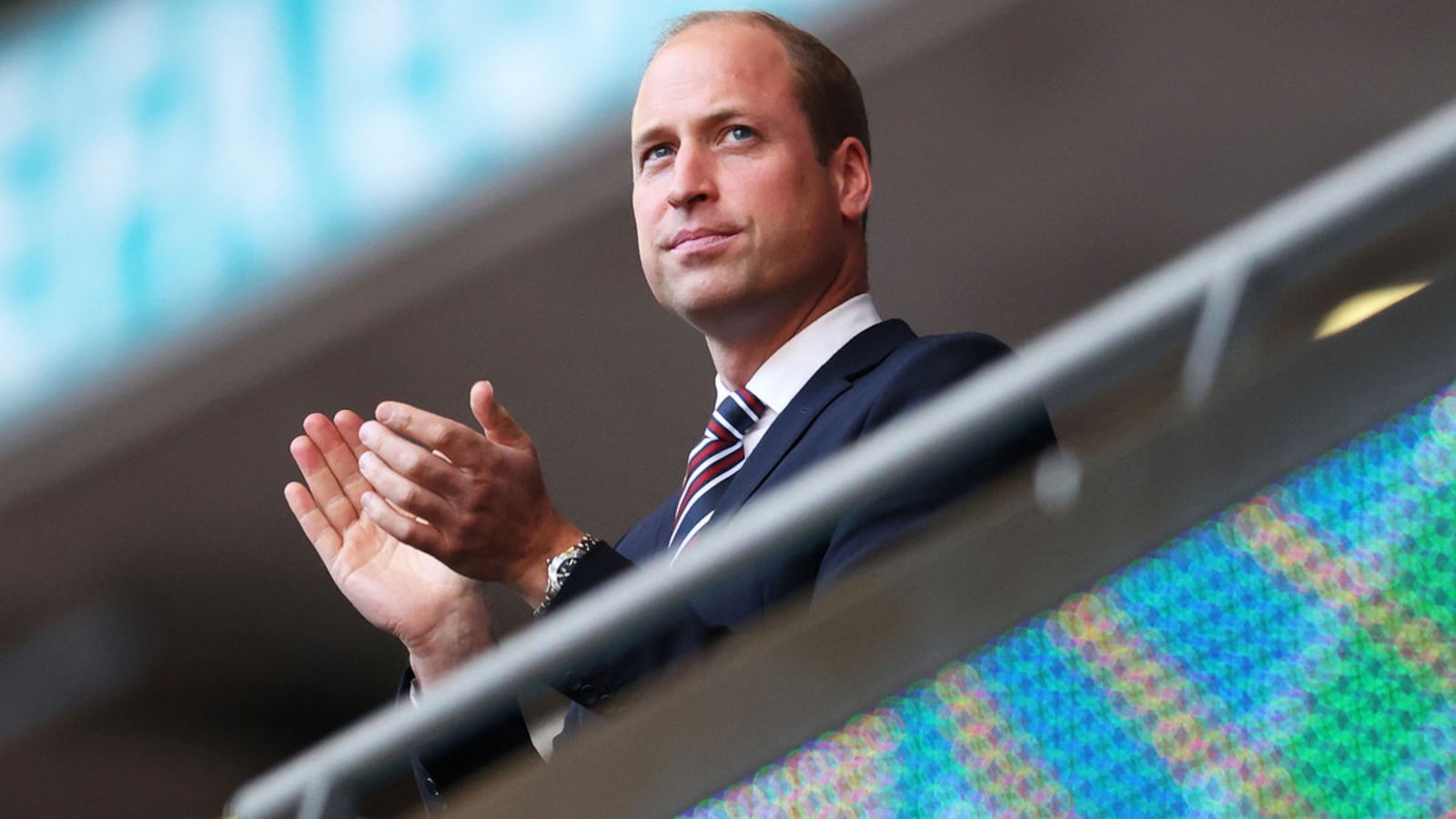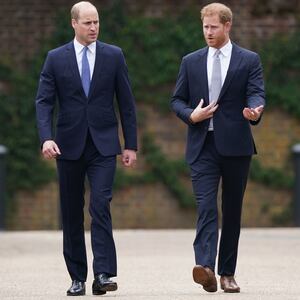If you love The Daily Beast’s royal coverage, then we hope you’ll enjoy The Royalist, a members-only series for Beast Inside. Become a member to get it in your inbox on Sunday.
This week, the British terrestrial TV channel ITV became the first major media outlet to be silenced under Prince William’s aggressive and apparently new legal and media strategy, which is based on rapidly rebutting stories he and his aides consider inaccurate—rather than simply ignoring them as he has done in the past.
Before broadcasting a new documentary on Sunday, ITV cut a claim by author Omid Scobie that William had sought to call into question his brother’s mental health. ITV did so after being warned by William’s lawyers that the claim was “defamatory,” according to reports. The station appears to have rapidly rolled over at William’s behest.
The new strategy represents the pathology of William’s desires. He has always shared with his brother Harry a deep-seated desire to take on and confront the press when they, as he sees it, tell lies about him or his family or misrepresent him. There have been a few well-publicized tussles, most memorably his decision to pursue a French photographer and magazine after it published photographs of Kate sunbathing topless, but he has been largely constrained from doing so up until now by Queen Elizabeth’s insistence that the royals shouldn’t dignify tabloid tattle with a response, and that doing so only makes it worse.
However as William grows in authority, and faced with an unprecedented and highly credible tidal wave of allegations against him and his wife from the Sussexes, he is now moving forward with an increasingly proactive and aggressive stance.
Day to day, William’s more forceful strategy is being overseen by his new private secretary, Jean-Christophe Gray, who was appointed to the role in February this year. Gray is assisted by an intensely media-savvy core group of trusted advisers around William and Kate, particularly Kate’s good friend and right-hand woman Natasha Archer.
Archer has an intimate understanding of the benefits and risks of engaging with the press because she is married to Getty Images chief royal photographer, Chris Jackson, who has close working relationships with almost every major British newspaper.
Another key player in William’s office is Edwina Iddles, officially chief communications officer for William and Kate’s charitable foundation but in practice their top media fixer. Iddles’ background is confrontation; she worked as a press officer for the Conservative government from 2015 to 2020, becoming a senior spinner in the Department For Exiting the European Union and ultimately chief press officer at the Home Office.
It’s not the only connection to the ruling government in William’s office—his former private secretary, Simon Case, 42, left the job in August 2020 to become Britain’s youngest ever Cabinet Secretary. The role makes him the de facto head of the British civil service. The BBC called Case “the most important man in politics you’ve probably never heard of” owing to his role as senior policy adviser to the prime minister and Cabinet.
The overall Kensington Palace communications boss, Charlotte Pool, left the job in June 2021 after four years working for William and Kate, and her replacement has not yet been announced.
Sources tell The Daily Beast that the royals’ most trusted lawyer, Gerrard Tyrrell, a senior partner at their preferred legal firm, Harbottle & Lewis, remains in charge of William’s legal affairs, especially where the media and potential defamation is involved.
In an intriguing divergence between the households, however, the queen herself, palace sources tell The Daily Beast, will continue to abide by the old mantra of “never complain, never explain.”
Even she, apparently, has limits, however, and was apparently pushed beyond them when Harry and Meghan claimed that they had sought the monarch’s permission to name their daughter Lilibet. A terse, anonymous statement was leaked from the palace to the BBC saying she was “never asked” about the notion.
While William has always been more vocal when it comes to airing his grievances with the media—and seeking to silence unwelcome stories—than his grandmother, it was interesting to see the aggressive new strategy in practice last weekend.
As The Daily Beast reported in our Royalist newsletter, Scobie alleged that Kensington Palace had planted a negative story in the press, saying, “there were source quotes that came from a senior aide at Kensington Palace saying that William was worried about his brother’s mental health.”
Upon reading the story, it appears, William, or his aides, became so concerned that they instructed their team to issue a legal threat to ITV. ITV rapidly caved, and cut the words “about his brother’s mental health” from Scobie’s quote, the Daily Mail reported.
It was a rather odd target for royal ire. The documentary, which also featured contributions from author and Daily Beast contributor Robert Lacey, was evenhanded and not inaccurate in its retelling of the story of the breakdown of Harry and William’s relationship.
And ultimately William scored a pyrrhic victory, as the news that William was trying to gag, censor, and control the media became a bigger story than the original one had been (unintentionally perhaps proving the strength of the queen’s preferred strategy of letting water roll off a duck’s back).
However, the intervention marks an unmistakable line in the sand. It’s a change in direction that has been gathering pace for several years but was accelerated by Harry and Meghan’s bombshell interview with Oprah Winfrey, in which the Sussexes memorably accused the royal family of ignoring a suicidal Meghan’s pleas for mental health help and said that one unnamed member of the family asked racist questions about their future children’s likely skin color.
Kensington Palace also made it clear they were not afraid to fight dirty by leaking allegations that Meghan bullied her staff to The Times before the interview screened. Meghan and Harry described this, with some justification, as a “calculated smear campaign.”
It’s all very different to the way it once was.
As one senior tabloid newspaper executive told The Daily Beast: “There was a time when you could literally write anything about the royals and it was almost guaranteed you wouldn’t hear from them. However since about 2016 they have become steadily more interventionist, and seemed to be trying to create a culture where reporters were actively encouraged to go to them with stories for pre-publication guidance. What we are seeing now is an extension of that; there is more briefing to the U.K. press, more engagement—but more use of legal threats as well.”
Mark Stephens, a media lawyer at Howard Kennedy, told The Daily Beast: “The young royals do seem to have moved on from “never explain, never complain” and they are now much more likely to engage in rapid rebuttal. That is a pretty major change and it is representative of a generational shift between the old and new generation. For William and Harry, you have to assume this is as a result of their own personal perceptions of the media stemming from the tragic circumstances of their mother’s death.”
Kensington Palace, ironically enough, declined to comment to The Daily Beast for this story.






